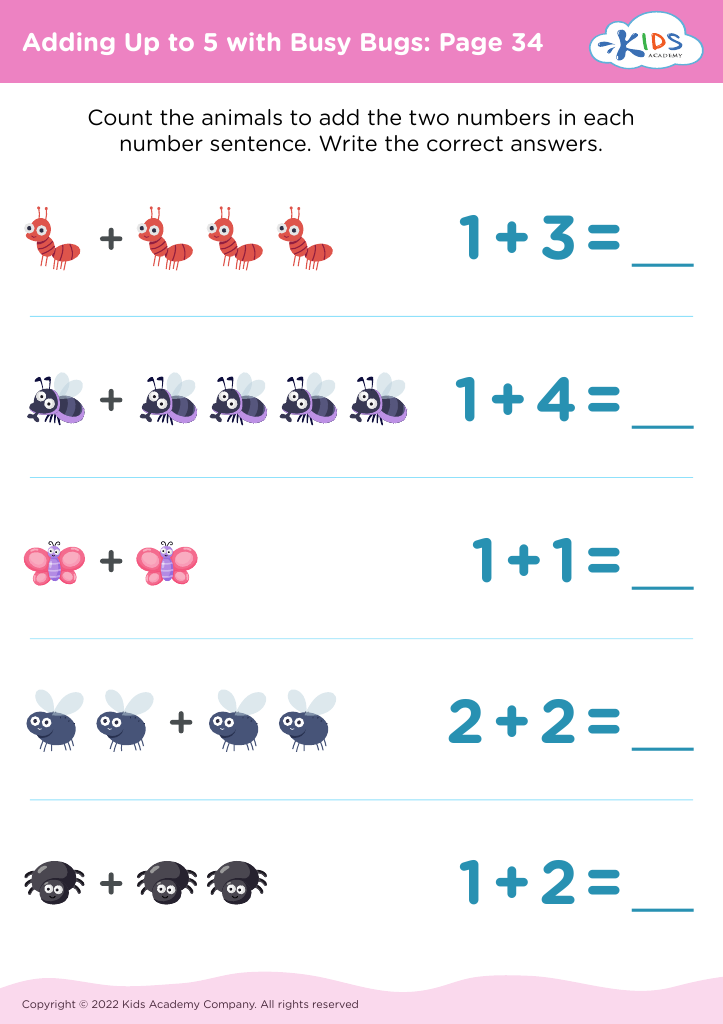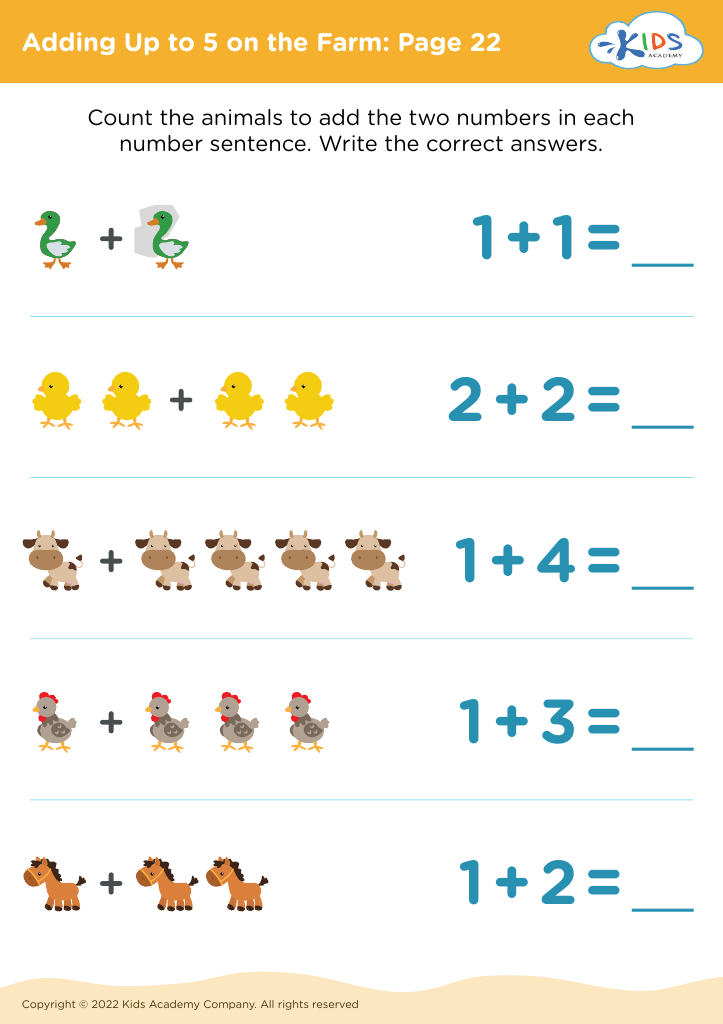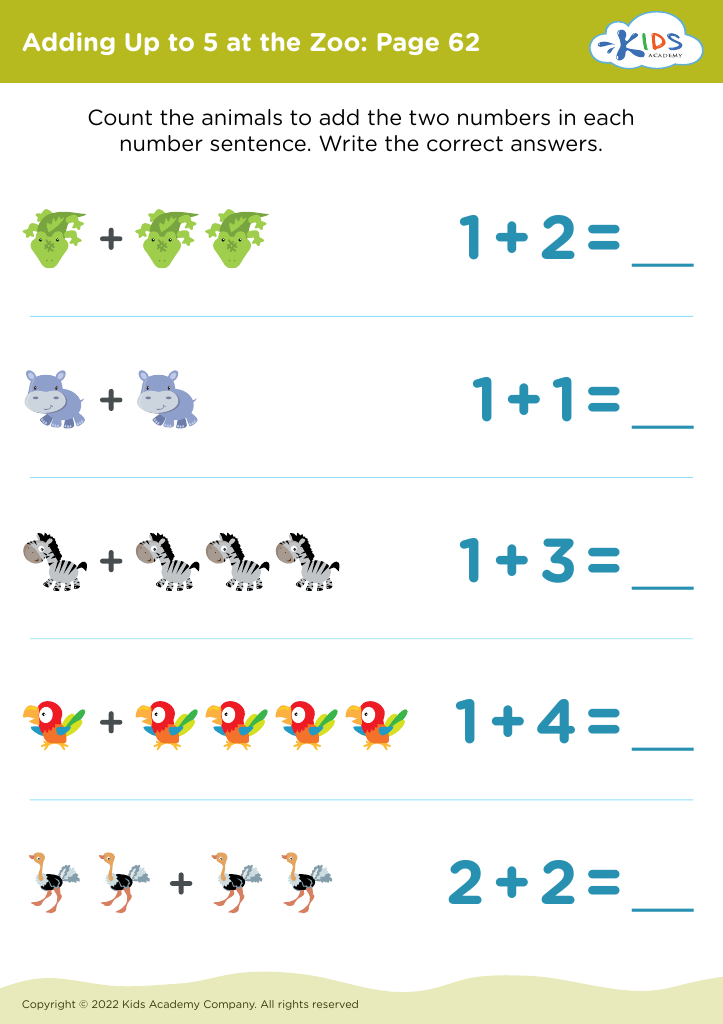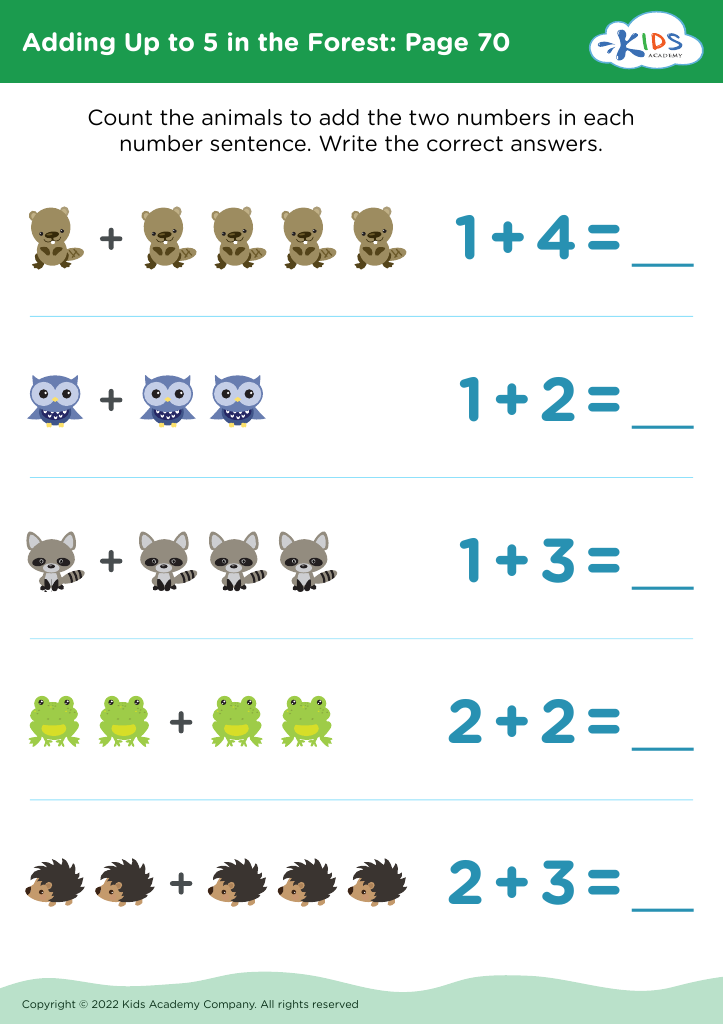Enhancing focus Addition & Subtraction Worksheets for Ages 3-7
4 filtered results
-
From - To
Enhance your child's math skills with our engaging Addition and Subtraction Worksheets designed specifically for ages 3-7. These thoughtfully crafted activities not only teach essential arithmetic concepts but also promote focus and concentration in young learners. Each worksheet encourages children to practice problem-solving while developing fine motor skills through interactive, visually appealing exercises. Perfect for classrooms or home learning, our resources make math enjoyable and accessible. Help your child build a strong foundation in mathematical thinking while enhancing their ability to concentrate with our carefully designed materials. Let learning be fun and effective with our focus-enhancing worksheets today!
Enhancing focus on addition and subtraction for children aged 3-7 is crucial for several reasons. During these formative years, children develop foundational cognitive skills that influence their future learning. Fostering a strong grasp of basic math concepts aids in establishing critical thinking and problem-solving abilities, which are essential as they progress in their education.
Engaging young learners with effective addition and subtraction activities not only helps them acquire these essential skills but also enhances their focus and attention spans. This improved focus supports learning in other subjects, as it builds a solid base of concentration—a skill increasingly important in our fast-paced, distraction-filled world.
Moreover, skillfully navigating opening mathematical concepts can bolster a child's confidence. A child who feels competent in math is more likely to take on challenges willingly and believe in their capability as learners. In an educational environment, teachers and parents who prioritize these teaching methods contribute to instilling a lifelong love of math, leading to better academic outcomes and opportunities in the future.
By providing engaging, focused math experiences early on, educators and parents lay the groundwork for well-rounded and successful learners prepared for the complexities of later education challenges.

























